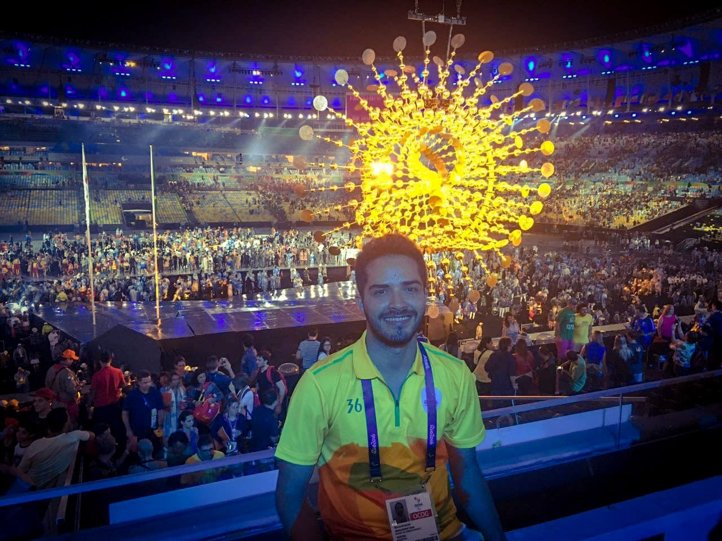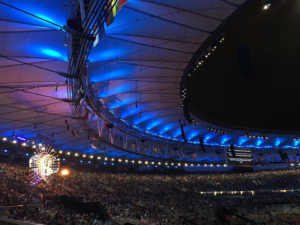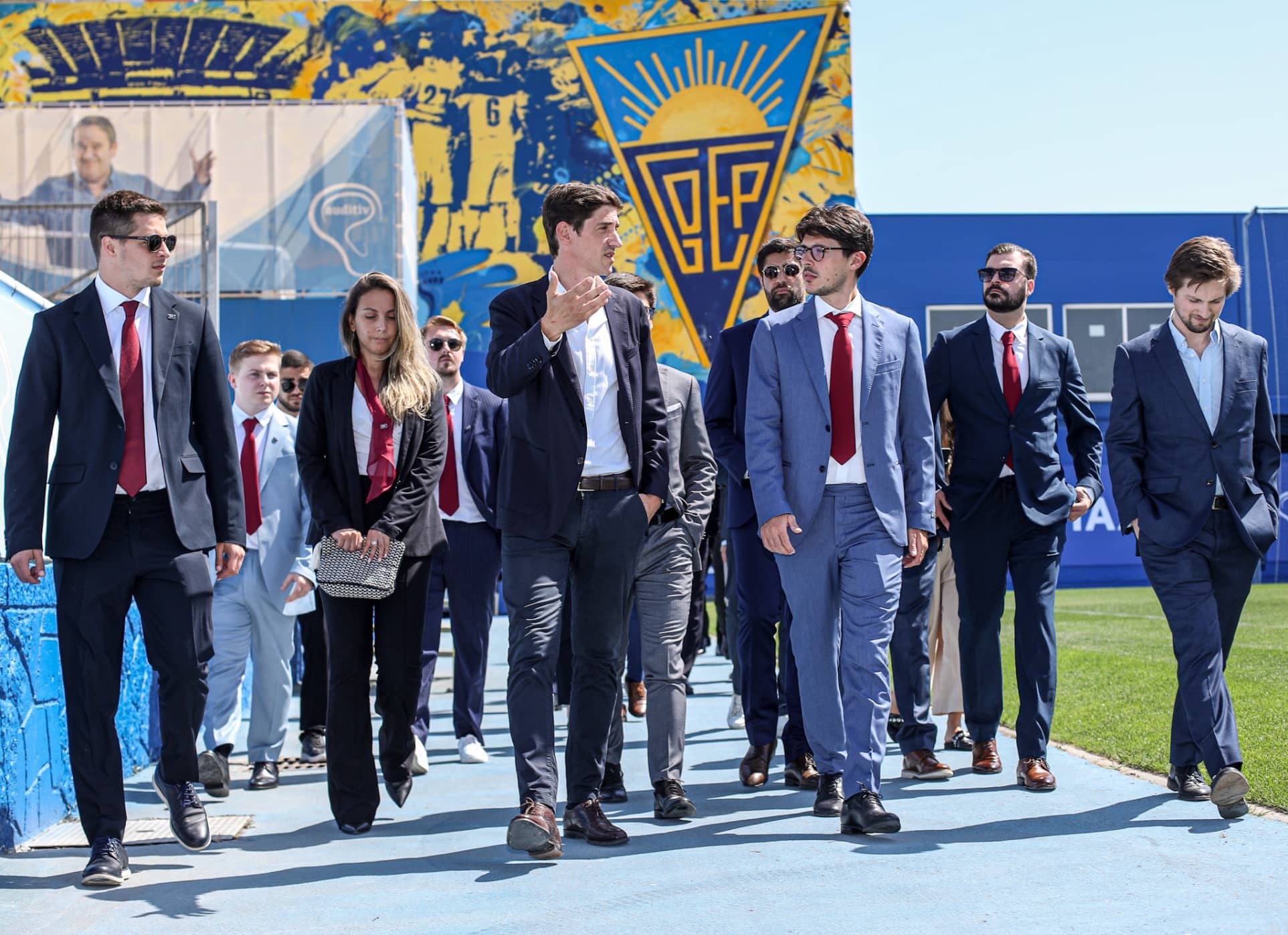Ticketing is not only about sales
Ticketing is a complex area and involves different lines like Commercial, Technology, Finances, and Customer Service among others. The main activity, obviously, is to sell tickets. However, it goes beyond that.
Nowadays, the ticketing industry is fragmented due to several solutions related to the services, which brings data over data, creating a scenario where clubs need to manage all this information accurately. To sell tickets is not the only determining factor; the trending approach is to treat the data well in order to offer the best access and to integrate it with several products and services.
For those reasons, clubs are moving towards platforms that can integrate all the main areas and services, personalised for their needs, avoiding companies with closed solutions.
By experiencing some practices in a football club, major events, and now combining with the knowledge that I am acquiring from The FBA classes with practical and academic examples from top executives that cover topics like Stadium Operations, Digital Marketing, Sponsorship, and Financial Strategy; Certainly, I will be a better and more prepared professional.
With this in mind, I’ll present an overview of how ticketing is practiced and structured in a football club and at major events. For the clubs, how the platform interacts with numerous services from other departments; for major events, how the ticketing is designed within Local Organizing Committees and Confederations.
Event organizers aim to facilitate the ticket purchase and access to the venue in order to reach a significant number of attendances and to please the fans. In football, the main organisers are the clubs and Confederations/Football Associations through their tournaments (e.g. FIFA World Cup and UEFA Champions League).
For football clubs, the season tickets, packages and membership programs are products that assure ticket sales throughout the season because the fans can purchase tickets in advance, guaranteeing their places. The former are more common in Europe, while the latter are well applied in South America, mainly in Brazil.
For Football Associations and their tournaments, the main platform is still the “pure purchase” through web sales and Box Offices, selling individual tickets or packages.
In the past, to buy a ticket for a competitive football match used to be painful. The fan had to leave from wherever he/she was to face long queues at the Box Office, black-market sellers, not knowing exactly which seat was available. Now, through the internet, it is possible to buy tickets through the web page and mobile apps; sending the “tickets” directly to membership cards, apps, e-wallets, print-at-home, etc. Due to this new perspective, it is mandatory to invest in solutions that facilitate the fan’s journey. Moreover, to manage it.
In a football club, a ticketing platform is built to serve the general public, season ticket holders, members, hospitality clients, internal clients, partners, sponsors, etc. It needs to communicate with the club’s CRM, mobile app, e-commerce, accounting, access control, among others; and to third-party partners such as payment, pricing algorithms, etc. At least four essential areas will be connected (Technology, Finances, Stadium Management, Relationship, among others).
To understand how several parts can be linked, let us focus on the fan’s purchase journey.
Registration/Login: where the fan’s primary and complex data are stored (basic info like age and address, segmented info like a preferred player, etc.), ideally linked to the CRM Platform.
Match Selection: the fan selects the match that he/she wants to buy a ticket for or to confirm his/her presence if it is a season ticket. Again, the CRM can be linked, since the purchase tracking can be stored in the database to validate the membership.
Sector/Seat Pick: the seat pick is based on the price, sector and location; a 3D Platform might be available, allowing to preview the seat viewing. Also, business rules built into the ticketing platform (linked to the CRM and Membership Program) can apply discounts on the tickets (member plan, disabled person, etc.).
Access Output: The fan needs to choose how the ticket will be delivered. There will be options via mobile apps (QR Codes and Bar Codes), hard ticket collection (Box Offices or Self-service machines), membership card, etc.. The sales platform can be linked to the CRM and use output access information to communicate with the fan through reminders, check-in add-ons, etc. Then, the access control system (used by turnstiles and/or hand scanner) built in or not within the system, will receive the information from the Sales.
Payment: By the end, the payment method needs to be informed (credit card, debit card, points, etc.). The gateway makes the payment transaction from the store to the acquiring bank(s). Alternatively, the CRM and Membership program can validate the purchase through any loyalty points.
After this process, the fan can be led to services and products such as customer service, ticket resale or transferring, sponsor activation, licensing retailers, matchday benefits, social media, among others.
The example above might differ from club to club; each one has its business model.
Furthermore, in major events like the FIFA World Cup and the Olympic Games, some interactions are different than in football clubs due to their complexity and short-term period. But it is important to understand the whole set-up and how the Ticketing Area cooperates with others.
First, an exhaustive BID is set to choose the ticketing company to provide the sales and ticketing system to the event. This company works closely with the Ticketing and Commercial/Marketing Departments and gives technology to support all the ticketing operations. On top of that, the LOC/Confederation might develop an exclusive platform among a Ticketing Company that can be used for several tournaments.
Then, the Commercial/Marketing and Ticketing Departments define matters such as ticket categories, prices, sales calendar and ticket design.
Usually, many of the stadiums are not even built, and those that already exist will need to be adapted to the event.
Even though, to reach good attendances (85% – 100%) and sales, two principles should always be kept in mind: Sectorisation and Match Categorisation. For now, only Sectorisation will be detailed, followed by other Ticketing Areas on major events.
Sectorisation/Configuration
This team is responsible for converting the stadium into reality in the ticketing system. It liaises with Venue Development (architects and engineers), which is responsible for delivering the venue’s overlays during the construction or adaptation. This area builds each seating bowl on the system.
With the seating plans, it is a herculean task to allocate the pieces according to the clients’ necessities: authorities, media, sponsors, federations, clubs, broadcast, ticketing operations team, etc.. Everything needs to be chirurgical, and the “holds” need to fill the spaces like puzzles. Here, mathematics is an exact science; one missed piece, and a thousand of problems will emerge during the operations.
From the beginning of the first overlay until the end of the tournament, the entire ticket inventory will be checked, rechecked, allocated and managed.
Working with the Ticketing Provider, the Sectorisation/Configuration decides how many and when the tickets will be available for sale.
Group Sales
Some clients like Football Associations, Confederations, Athletes, Sponsors, Authorised Resellers have necessities such as seats in specific areas, particular quantity of tickets, logistics, dedicated customer services, among others.
The Group Sales team is the main facilitator between the Event’s Ticketing and these “special” clients. It liaises with Commercial/Marketing, Configuration, Official Bodies, Governments, Ticketing Operations to reach the best agreements, arrangements and distribution.
Hospitality
One of the most profitable areas, it is responsible for selling packages to companies, sponsors, high-class consumers, and federations, among others in the hospitality zones in the stadiums. This kind of product respects customised specifications and service levels like private spaces, suites, shared spaces and semi-shared ones, aiming to reach a full capacity of occupation. It is not only seat selling.
Due to the conditions mentioned above, Hospitality needs to work closely with areas such as Catering, Accreditation, Venue Development, Transport, Operations, etc.. Also, providing exclusive customer service to attending each contract.
Technology
To make sure that everything will work on web sales (servers, anti-hacking, software), access control (turnstiles, hand scanners) and equipment (printers, laptops, radios, etc.), the technology is responsible for the integration of all tech aspects within the department, venues, box offices and collection points. Also, to provide technical support during the event.
Operations
The Operations Team is responsible for delivering the final product in the venue (access control and seating bowl), box offices and collection points.
During the planning stage, an Operations Manager shall guarantee all the preparations to the matchdays and non-matchdays. During an event, he or she shall be responsible for keeping everything in order and for solving issues.
The Operation Manager will liaise with the…
- Ticketing Provider to receive the right tools (e.g. ticket printers) and system;
- Sectorisation/Configuration to avoid ticket issues and to help with resolutions;
- Venue Development to assure the right construction and position for Box Offices, Ticket Collection, Ticket Clear Points (Resolution) and Access Control (turnstiles);
- Technology to confirm internet and power in every point, proper equipment and proper integration with ticketing provider requirements;
- Logistics to receive the right furniture and equipment;
- Security to guarantee an appropriate and secure environment during access control (helping with queue management) and seating bowl;
- Signage to receive the right information regarding Sectors, Blocks, Seats, Rows, etc. that will inform the spectators;
- Volunteers to help and cooperate with specific assignments;
- Spectator Services to guide, assist and inform the spectators correctly through the venue;
- Venue Management to be a key partner and facilitator inside the stadium.
Most of the time, the Operations team, alongside Customer Service, is responsible for delivering tickets through courier services because the first sales occur before the Ticket Collection Centers open, and part of the distribution is worldwide.
Undoubtedly, Ticketing in major events is a complex and very important undertaking. Consequently, it is a vital area that brings the ones responsible for making the atmosphere inside the stadiums unforgettable: the spectators.
In many ways, it is a lifetime experience with an international environment, incorporated by people from diverse backgrounds where the learning is continuous. On a quest to living this experience again, I have decided to join The FBA and, with no surprises, I have found it.
As previously mentioned, Match Categorisation and Sectorisation are important to reaching good attendances, and consequently, revenues.
During the Sectorisation, the stadium will be fragmented in several pieces from the Presidential Tribune to the General Public. The process will continue based on factors such as pitch viewing, exclusive accesses, position of the sun, etc. All of this will construct the scenario for pricing, and most importantly, the definition of the targets.
For EURO 2020, the General Public’s sectorisation is divided into three categories, the pitch vision is the determinant factor, whether Upper or Lower level (CAT 1 for Centrals, CAT 2 for Corners and CAT 3 behind the goals).
In football clubs this is not too dissimilar, even with a good range of categories. The main difference is that once the club has a sectorisation, it will be used over the years. Small changes may occur to correct inequalities or other issues.
Additionally, the Match Categorisation will help to decide the ticket price; and it matters if it is disclosed in advance.
For major events, the stages of the tournament are determinants: groups phase (except Opening Match), round of 16, quarter finals, semifinals and the big final.
For football clubs, it is based on data, rivalries, opponent significance, championship attractiveness, etc. Due to historic data, clubs can develop algorithms to help with these decisions.
The more significant and attractive the game is, the more expensive the ticket price will be and vice versa. The essential factor is to reach a balance (attendance and income) throughout the season or tournament.
When there is a published match categorisation, the organiser allows the fans to prepare themselves on how they will spend money throughout the tournament or season. Aiming to fill the stadiums, this is the moment to decide how much the products will cost (season tickets, packages, membership discount, etc.). At this point, with all the cards on the table, the club will define what the best distribution of these products is.
These practices (Sectorisation and Match Categorisation) are essential for Ticketing because when a stadium is well sectorized it allows every type of public to attend the matches according to their particularities (price, perks, disadvantages, etc.). Match categorisation projects respect towards the fans as it informs them how much they can spend during a season or tournament and lets the organisers offer products that will bring benefits to everybody. If both work together, it is expected that the stadium will always have significant attendance and ticket revenues.
As shown, selling tickets is only a small part of a massive and fragmented structure. The organizer needs to mind the different aspects that will influence all the stakeholders, from the seating bowl overlay until the fan’s access to the seat – considering that technology, data treatment, relationships, pricing methodologies and hospitality are playing significant roles. Those who find the best integration between services and practices will deliver the most excellent experience to the supporters.
Ricardo Brito Teixeira is a Candidate of The FBA’s Professional Master in Football Business 4th Edition. He can be contacted via LinkedIn.







